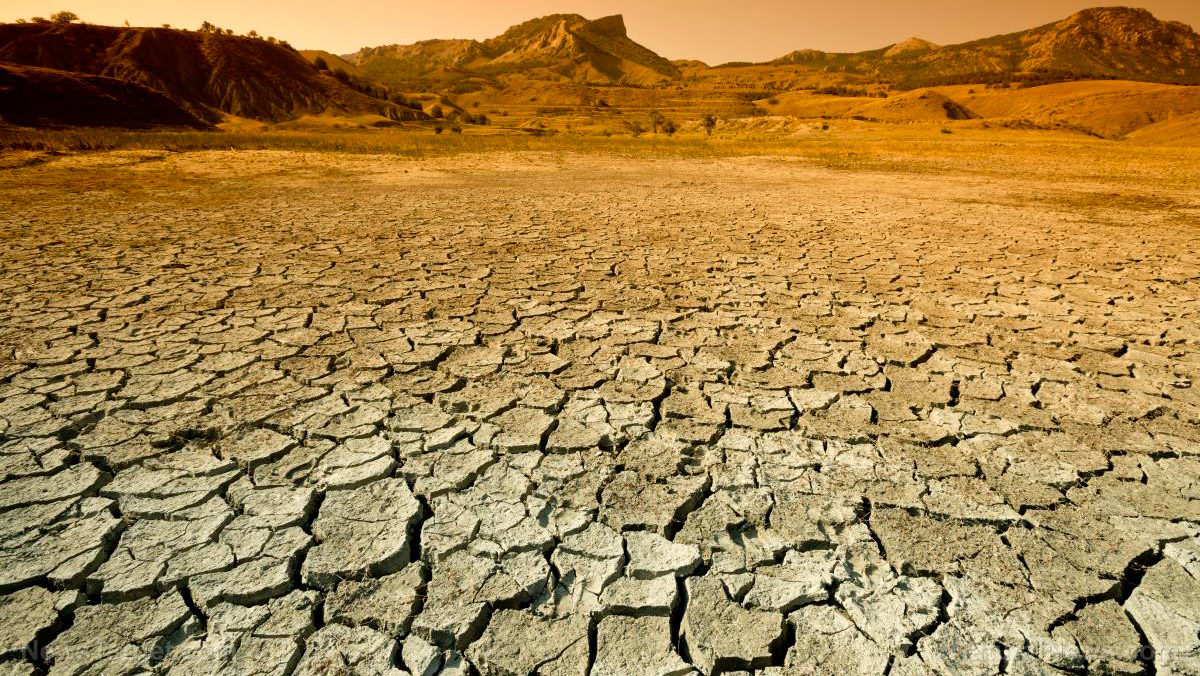 Parler
Parler Gab
Gab
- Iran is using cloud seeding to combat its worst drought in 50 years.
- Rainfall is 89% below average and key reservoirs are nearly empty.
- The government warns Tehran could face evacuation without rain.
- Iran had previously accused Israel and the UAE of stealing its rain.
- This geoengineering carries major unknown environmental risks.
A history of weather warfare accusations
This push for weather control carries a dark historical echo. In 2018, Brig. Gen. Gholam Reza Jalali, a senior officer in the Islamic Revolutionary Guard Corps, made a startling accusation. He stated, "Both Israel and another country - the UAE - are working to make Iranian clouds not rain." At that time, the UAE was actively pursuing its own cloud seeding program. This paranoia over weather being used as a weapon now sees Iran adopting the very same controversial technology it once decried. The risks of such climate engineering are profound and largely unquantified. Tampering with atmospheric chemistry can have unintended and far-reaching consequences, potentially disrupting natural weather patterns in neighboring regions and causing unpredictable ecological side effects. Introducing substances like silver iodide into ecosystems is a large-scale experiment with outcomes that scientists do not fully understand. The situation on the ground is dire. The head of Iran’s National Centre for Climate and Drought Crisis Management, Ahmad Vazifeh, confirmed that dams supplying water to major provinces are in a "worrying state." The visual evidence is jarring; images show the gritty, grey, and empty basin of the Amirkabir dam, while rusted boats lie stranded on the former shores of Lake Urmia.The human cost of desperation
The human response to this crisis speaks volumes. Hundreds of citizens have gathered at mosques, including the Imamzadeh Saleh shrine in Tehran, to participate in traditional prayers for rain. This spiritual appeal stands in sharp contrast to the technological intervention their government is now pursuing, illustrating a population caught between faith and a forced scientific fix for a problem that has been decades in the making. While the United Arab Emirates and other nations have also employed cloud seeding, its efficacy is still debated by scientists. What is not debatable is that these programs are a symptom of a deeper failure to manage water resources sustainably. They represent a quick technological fix that ignores the need for long-term conservation and environmental stewardship. The Iranian government’s plan to penalize households and businesses for excessive water consumption, while perhaps necessary, feels like a feeble response to a systemic collapse. When a nation’s largest lake has vanished and its capital faces potential evacuation, the problem extends far beyond individual usage. Ultimately, Iran’s cloud seeding program is a terrifying gamble. It is the act of a regime, and indeed a global community, that would rather attempt to play god with the atmosphere than confront the difficult truths of resource management and ecological limits. This desperate grasp for control over the weather may provide temporary relief, but it sets a dangerous precedent, opening a new chapter where the sky itself is no longer a natural resource, but a contested battlefield for geoengineering experiments. Sources for this article include: ArabNews.com CNN.com BBC.co.ukUkrainian strikes, sanctions fuel global diesel crisis as prices soar
By Belle Carter // Share
Ultra-processed foods linked to surge in early-onset colorectal CANCER, study warns
By Patrick Lewis // Share
By Lance D Johnson // Share
SNAP “reset”: USDA requires recipients to reapply for benefits
By Ava Grace // Share
Tech giant Microsoft backs EXTINCTION with its support of carbon capture programs
By Ramon Tomey // Share
Federal agents arrest 81 criminal illegal immigrants in Charlotte crackdown
By Belle Carter // Share
Governments continue to obscure COVID-19 vaccine data amid rising concerns over excess deaths
By patricklewis // Share
Tech giant Microsoft backs EXTINCTION with its support of carbon capture programs
By ramontomeydw // Share
Germany to resume arms exports to Israel despite repeated ceasefire violations
By isabelle // Share









